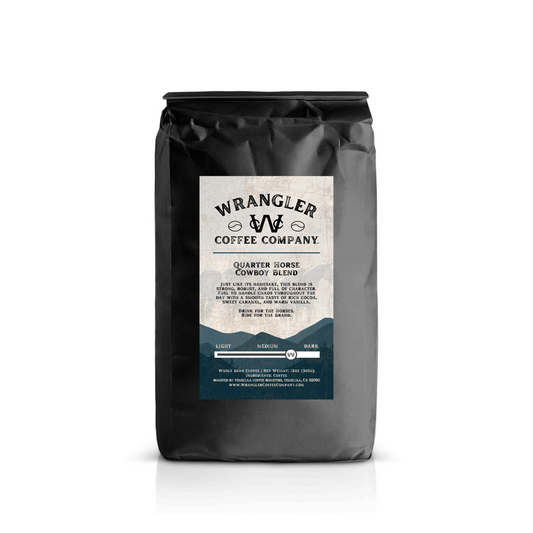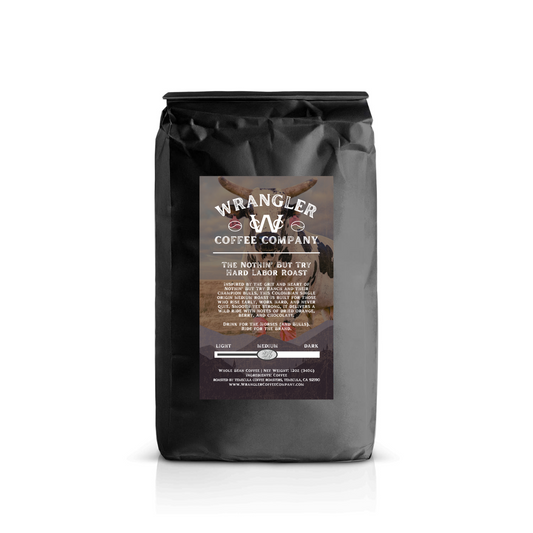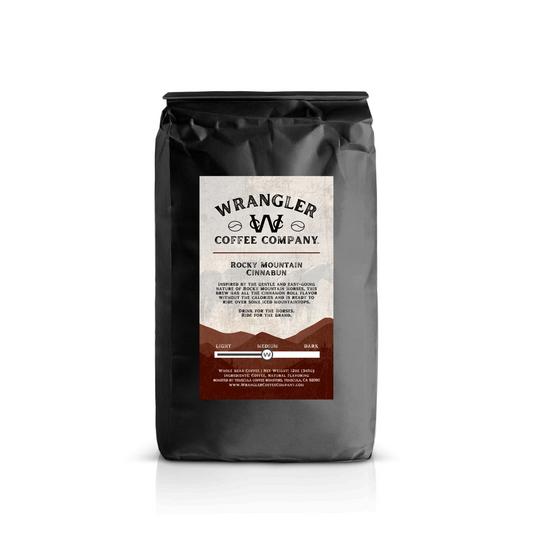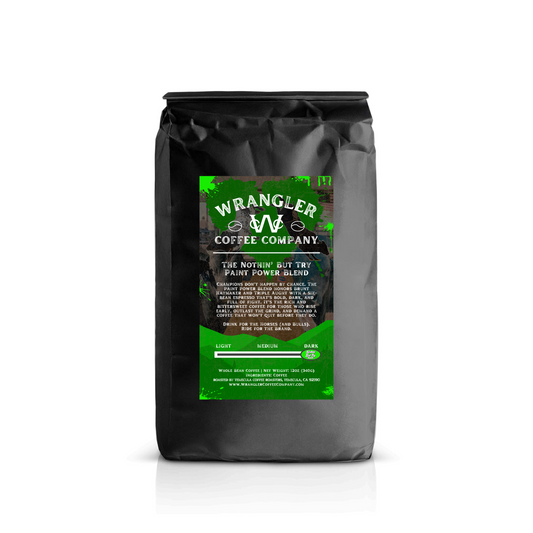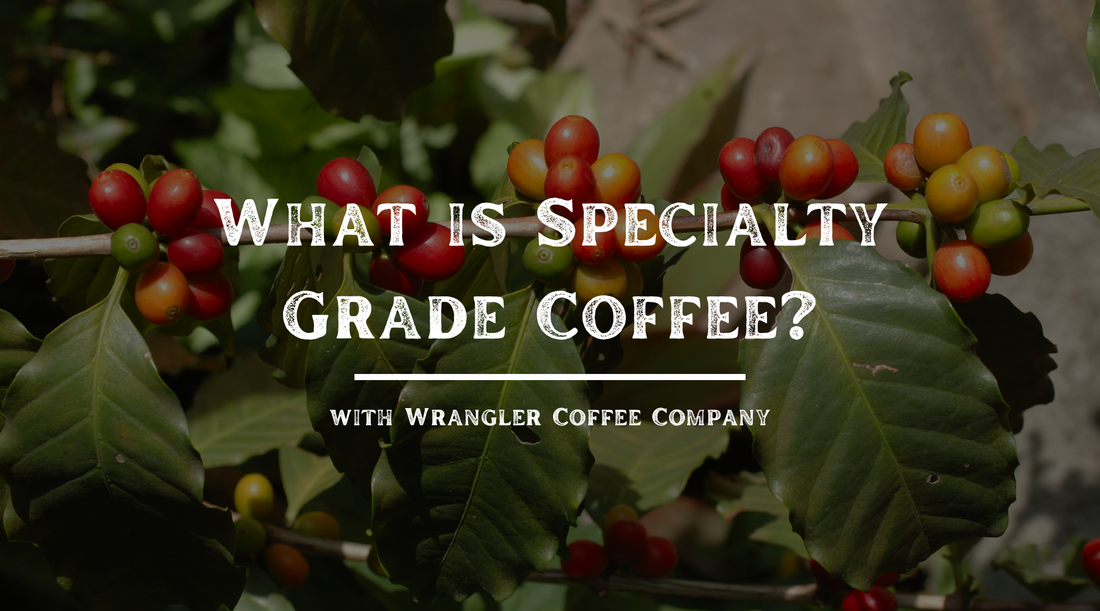
What Is Specialty Grade Coffee — The Finest Beans on the Frontier
Share
Out on the range, a cowboy learns real quick to separate the wheat from the chaff, the strong horse from the skittish colt, and the good coffee from the kind that makes your face pucker like a lemon in July. And partner, if you’re wonderin’ what is specialty grade coffee, well—let this old barista-cowpoke break it down for you in language as clear as a mountain stream.
So, What Is Specialty Grade Coffee?
Specialty grade coffee ain’t your average cup o’ joe. According to the Specialty Coffee Association (that’s the governing outfit here), coffee earns the “specialty” badge if it scores 80 points or higher out of 100 in a professional tasting known as cupping. That score is based on things like aroma, flavor, aftertaste, body, balance, and absence of defects.
It’s coffee that’s been cared for every step of the way—from seed to sip—and it shows up in your cup like a well-trained horse: strong, smooth, and dependable.
What Makes It So Darn Special?
Here’s the rundown of what separates specialty grade coffee from your run-of-the-mill diner sludge:
1. Single Origin or Traceable Source: Specialty coffee’s got a backstory. It don’t just show up anonymous in a can. These beans are traceable to specific farms, co-ops, or even micro-lots. You know who grew it, where it came from, and what kind of soil it grew in—kinda like knowin’ the bloodline of a prized stallion.
2. High Elevation: Most specialty beans are grown at elevations above 1,200 meters. Why? The cooler climate slows the growth of the coffee cherry, giving it more time to develop complex flavors. That’s like lettin’ a good stew simmer instead of boilin’ it to bits.
3. Hand Picked: You won’t find machines doing sloppy harvesting here. These beans are picked by hand, so only the ripest cherries make the cut. That’s labor-intensive, sure—but it’s how you get quality over quantity.
4. Meticulous Processing: Specialty coffee is processed with care. Whether it's washed, honey-processed, or natural, every method is dialed in to bring out the bean's best traits. One bad batch and it drops in rank faster than a greenhorn in a rodeo.
5. Roasted with Precision: Ain’t no guesswork at the roaster. Specialty beans are roasted in small batches with care, attention, and a whole heap of experience. The goal? Maximize flavor and showcase the bean’s natural profile.
Why Cowboys (and the Rest of Us) Should Care
Now I know what you're thinkin': "I just want a good cup to get me movin’ before sunrise." Well, specialty grade coffee ain’t just about fussiness—it’s about respect. Respect for the farmer, the land, and the drink itself.
- Better Flavor: Smooth, rich, layered with notes like chocolate, fruit, spice, or nuttiness.
- Fewer Defects: No sour, rubbery, or stale notes. It’s as clean and honest as a prairie breeze.
- More Transparency: You know who grew it, how it was processed, and how it got to your mug.
It’s not just coffee—it’s craftsmanship. And cowboys, we respect a job well done.
Specialty Coffee vs Commodity Coffee
Here’s where things get real. Commodity coffee is bought and sold on the open market in bulk. It’s traded like corn or crude oil, and flavor takes a backseat to price. Most supermarket and fast food coffee falls in this category.
Specialty coffee, on the other hand, is like a custom saddle—hand-stitched, well-worn, and built to last. You pay a bit more, but what you get in return is leagues better in taste, ethics, and quality.
How to Spot Specialty Grade Coffee
Here’s a cowboy checklist for buyin’ specialty coffee:
- Origin is listed clearly (country, region, sometimes even farm)
- Roast date is fresh (look for something within 2–4 weeks)
- Flavor notes are provided (like citrus, chocolate, or berry)
- Small-batch or artisan roasted
- Certified grades or partnerships (like SCA score or direct trade)
Don’t let fancy labels fool ya—if it don’t check those boxes, it might just be wearin’ a ten-gallon hat on a five-gallon head.
Wrappin’ It Up: A Cup Worth Wrangling
Specialty grade coffee ain’t just some fancy marketing gimmick—it’s the real deal. It’s the result of generations of knowledge, high standards, and a downright stubborn commitment to quality. If you’re lookin’ to brew coffee that tastes like it was made for sunrises over the prairie, long rides through the sagebrush, or just contemplatin’ life by the fire—you’d do well to saddle up with specialty grade beans.
It’s more than just coffee. It’s a tribute to the land, the people, and the ritual that starts the day for cowboys, ranchers, and early risers everywhere.

